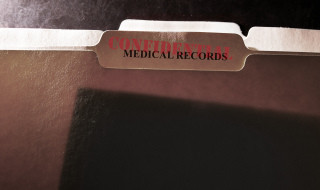
Neel Kothari questions what constitutes confidential information.
As far back as the late fifth century BC, Hippocrates stated: ‘Whatever, in connection with my professional practice or not in connection with it, I see or hear in the life of men, which ought not to be spoken of abroad, I will not divulge, as reckoning that all such should be kept secret’.
This was later adapted in the Declaration of Geneva, which says: ‘I will respect the secrets confided in me, even after the patient has died’.
Whilst the words may have changed, these ideas are pivotal to the dentist/patient relationship.
So what constitutes confidential information?
Well the courts have established three elements required to establish a breach of duty: the first is that the information must have a necessary quality of confidence, secondly the information must be disclosed in circumstances implying an obligation of confidence, and thirdly the fact that harm could be caused if the information is disclosed without authorisation.
Grey areas
Whilst this represents a broad set of rules, a number of grey areas exist in day to day practice that require the dental team to constantly be on guard.
In my own practice, we regularly find family members calling up to confirm appointments for their spouses and siblings, many of whom we have known for years.
Should we tell?
Well, on the one hand it would certainly make it easier if we did, but what if there was an ulterior motive in requesting this, such as a jealous spouse trying to find out the other’s whereabouts?
Our standard answer is: ‘I’m sorry but we have to keep that information confidential’.
Ultimately, patients give us their information with the implied expectation that it is needed for us to help treat them.
This information belongs to them and not us.
Accordingly, patients may permit disclosure to whomever they wish, such as their solicitors, insurance companies or even other dentists should they choose to move to a different practice.
Justifying disclosure
However, there are a number of situations where we could justify disclosure without the patient’s consent (or even knowledge).
For instance, if we were required to do so by a court order or, in rare cases, if there was an overwhelming public interest, then it may be justifiable to disclose information otherwise considered confidential.
Thankfully these scenarios are less common in the dental profession and our indemnity organisations are well versed in advising the dos and don’ts in this area.
Finally, not only must patients’ clinical records be kept confidential, but we hold statutory obligations to maintain records for patients’ own access.
In this ever litigious world it is worth noting that patients may at some point read what we have written, so keeping to a professional style of record keeping would certainly be advisable.
Long gone are the days where clinicians could use acronyms such as GLM, FLK, TUBE and FUBAR without fear of recrimination.
I’d definitely recommend avoiding them.
You know, just in case.


